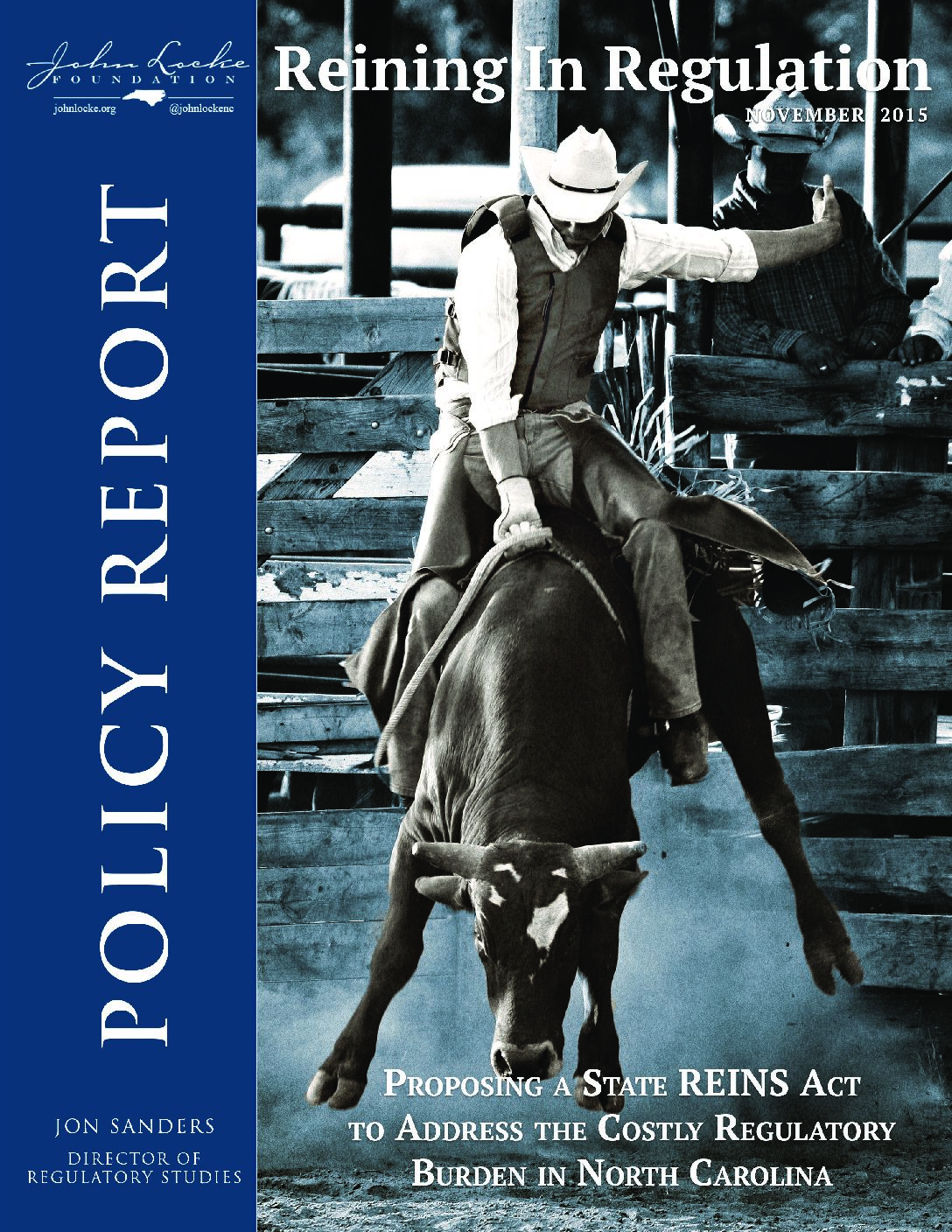For decades, the overproliferation of federal regulations has attracted calls for reform from leaders on either side of the political divide. The preponderance of empirical studies of the effect of regulation on economic activity concludes that regulation harms economic growth.
The loss of economic productivity from federal regulatory activity over time is quite massive. Economists John W. Dawson of Appalachian State University and John J. Seater of North Carolina State University found that the U.S. economy is about one-fourth the size it potentially could be owing to the increasing federal regulatory burden.
Regulations are rules carrying the full force of law that are set by executive agencies and commissions to implement and interpret enacted legislation. The agencies are able to do this by a delegation of lawmaking authority from the legislature. In this respect, an essentially legislative power of lawmaking is vested in bureaucrats who lack direct accountability to the people. This leaves them open to several risks of abuse of power, with state law being crafted without the consent of the governed.
Recently, federal legislation called the REINS Act (for “Regulations from the Executive In Need of Scrutiny”) would address that problem by seeking to restore some delegated authority back to the U.S. Congress. Under the REINS Act, a proposed major rule could take effect only if Congress passed (and the president didn’t veto) a joint resolution to affirm it within 60 days after receiving a report of the proposed rule. It would thereby require any rule expected to have significant economic impact to be deliberated over by elected and accountable representatives of the people.
A groundbreaking new report from economists Paul Bachman, Michael Head, and Frank Conte at the Beacon Hill Institute at Suffolk University (BHI) estimated the annual burden of state regulations in North Carolina to be, at minimum, over $3.1 billion annually. That enormous figure, however, is “a fraction of the total cost to the private sector of regulations in North Carolina,” they write, since the bulk of state regulations’ costs were hard even to quantify. The total cost could be as much as $25.5 billion annually.
A proposed new regulation is far, far more likely to come into effect than a proposed new law in North Carolina: 99.9 percent of agencies’ proposed new regulations take effect, whereas only about one in five (19.1%) proposed bills become law. The General Assembly can take action to block new regulations, but the same deliberative process that makes passing bills difficult also makes it hard to block regulations.
This paper therefore proposes a state-based REINS Act as a key sunrise provision to prevent adding unnecessary and harmful regulations to the state’s regulatory burden. It describes aspects of a REINS Act for North Carolina.
It also offers other sunrise provisions to consider, including such reforms as strong cost/benefit analysis, full consideration of alternatives to regulation, regulatory reciprocity, small business flexibility analysis, no-more-stringent laws, and stated objectives and outcome measures. Finally, it proposes adding a default mens rea provision to help prevent another problem of overregulation, which is overcriminalization.
by Jon Sanders
Director of the Center for Food, Power, and Life, Research Editor, John Locke Foundation



